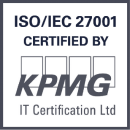By the time I left Wise, if you asked nearly any of the 2000+ employees there, they’d say Wise was their favourite place they’d worked in. Ever. Yes, the mission — money without borders — is strong, but there was something much more magical at work.
I’ve worked in many companies over the years and I’ve seen, firsthand, that one of the fastest ways to fail as a company is to ignore the culture. When a culture turns toxic, it spreads quickly to the leaders, the everyday employees, the teams, the collaborations and, eventually, the product. Whereas, often, the reverse is true — maintain and grow a positive company culture and you’ll create incredible products.
So this is part 1 of 4 on Creating our Values.

Defining culture
Culture, in a nutshell, is how we do things.
Culture is how we hire, how we fire, how we promote, how we solve conflicts, how we do feedback, how we think about failures, how we prioritise, how we communicate, how we treat one another. And so much more.
Family isn’t infinitely sustainable at a growing startup
When you first launch a startup, there’s often a honeymoon period. You’re tiny but mighty — a small group of motivated individuals. You know what Jane is doing in Engineering and what Ralph is doing in HR and Sara the CEO shares about all her week’s meetings with prospective clients.
But, soon, after your company grows to more than a handful of humans, it starts to get tricky. Suddenly, the founders don’t have time to make all the decisions anymore. Suddenly leads have so much on their plates that they don’t have the time to understand what every team is doing. Suddenly, employees are questioning why certain things are done in certain ways and no one can remember the reason you did it that way in the first place.
At that point, an organisation has a decision to make.
Do you…
- Make more rules
- Engage in more politics
- Hire more managers
- Trust your people less and less
Or do you
- Build a strong culture
- Make meaningful processes
- Define your core values as a culture — and then act based upon them
I’m guessing you know which route we chose in Salv. The second.
Why culture matters
Maybe you’re reading this thinking, “Blah blah blah, culture is just another corporate buzzword” — hear me out.
The stronger the culture, the less corporate processes a company needs. The clearer the values, the more likely your employees can navigate tricky situations without needing extra policies or to bring in leadership to resolve things.
Values? Let me explain.

How values help
Early on, if you can, create a set of core values your people recognise as both:
- Actually true of the company culture.
- Practical enough they can be applied to everyday scenarios.
Because when you have a set of lived values that are more than just some nice words on a page, then your people know who they are. They have a higher set of principles to help them navigate muddy waters. Which, ultimately means you can trust your people to do the right thing because, at the core, they all agree on who they are and how they act. People can be independent and autonomous. They can be entrepreneurial. They can set incredibly ambitious goals — and then hit them.
If you don’t have a set of core values then, when tough times come, there’s no compass. People can squabble and fight and position themselves as company gang leaders to win territory. Anyone who’s worked in a company with strong office politics can attest to this.
Why we didn’t create values right away
While I said it’s important to create core company values early on in your journey, at Salv, we didn’t make them from the start. We made the conscious decision to make the process slow and deliberate. Why? Because, at the start, many of our Salvers were still from Wise. We felt it was important we didn’t create Wise 2.0 — that we developed our own identity. Which meant we needed to make a long-term plan on how we’d develop them.
Up next is Part 2: how Budapest set the foundation.
Previously, we wrote on how we created our Salv Brand identity. It’s something we were — and are — proud of. But what Salvers new and old often notice, far more than brand, is how strong and positive our culture is. You can see for yourself – just look at our Careers page and reach out to us if you have any questions.




